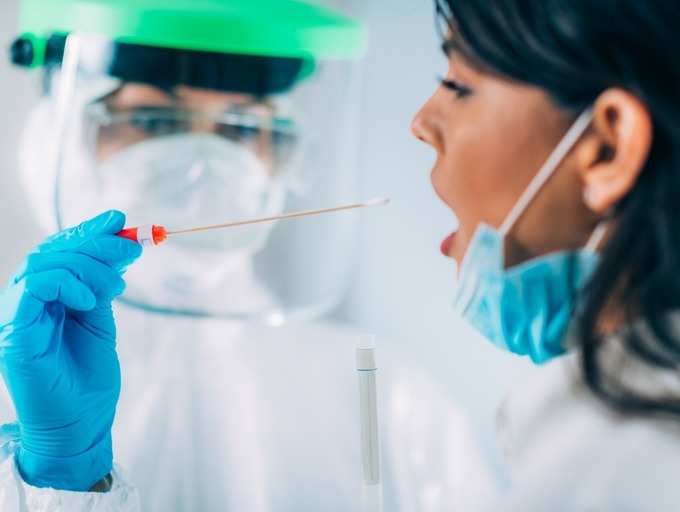False negative in COVID test: Here are three possible reasons for a false negative result
Could you get a 'false negative' test on a COVID test?

The barrage of symptoms-mild, severe or asymptomatic are just enough to confuse anyone about getting a COVID test done for themselves, especially during the pandemic. With the graded reopening of workplaces and public places, COVID tests are also being done for good measure, with an RT-PCR test considered to be the gold standard for testing. However, much like any diagnostic tool, there are odds that your test can deliver false negative and positive results.
COVID-19 tests may not be extremely accurate

Even though the chances of delivering the wrong results are on the lower side, there can be many reasons this can happen. We tell you about 3 such reasons:
You get tested too early

While symptoms can start to develop 2-4 days after being exposed to the virus, sometimes, it can take upto two weeks for the symptoms to fully show. Hence, it can be quite possible that a person gets a COVID test done "too early", which can make it likely to get a false negative on a test, despite the fact that you might be infected. Hence, people are generally advised to go for testing in the first week of contact or go for possible retesting to confirm doubts.
The swab test is not administered properly

The RT-PCR test collects a sample from your nasal passage as well as throat, both sites of active viral replication. A test comes out positive when viral load is detected there. However, if the swab sample, which is done with the help of a sensitive Q-tip isn't administered properly, there are chances that the sample doesn't pick up on enough mucosal secretion, or the viral load hasn't built up yet for a test to fully detect viral load.
Test sample gets contaminated

COVID-19 is a new infection and testing procedures require considerable time and effort for handling. Hence, it takes anywhere between 24-48 hours for a result to come out. If the test sample gets contaminated, isn't stored at the right temperature or the chemicals used to detect RNA don't function properly, it can also result in delivering false negatives.
Should you still be getting a test done to be sure?

Considering the sensitivity and surge in cases globally, people are getting COVID-19 tests done to negate fears. Early preventive tests can also cut down the risk of exposure. However, one must know that timing is key with COVID tests and there are chances of getting false positives and negatives.
Unless and until you exhibit symptoms, or have been exposed to a COVID+ positive person, getting a COVID test done is not advised.
Antigen tests, which are used for serosurveys as well could be rather helpful. However, if a person gets negative on antigen tests, despite considerate exposure, an RT-PCR test is then advised. Otherwise, there is no real reason for you to get an RT-PCR test done.
What should you do if you get a negative test and still show symptoms?
Again, no test is 100% accurate. Chances of
getting a false negative or positive exist, by a margin. Practising
quarantine measures when you experience symptoms, despite getting a
negative test result is a good measure to safeguard others from risk. A
simple way to do this would be to practice isolation for a certain
number of days (4-5 days minimum), wearing a mask, avoiding sharing any
utility with others and maintaining social distancing wherever possible.
Get in touch with a doctor, who would be able to guide you on the
medications and preventive measures needed to fight infection.